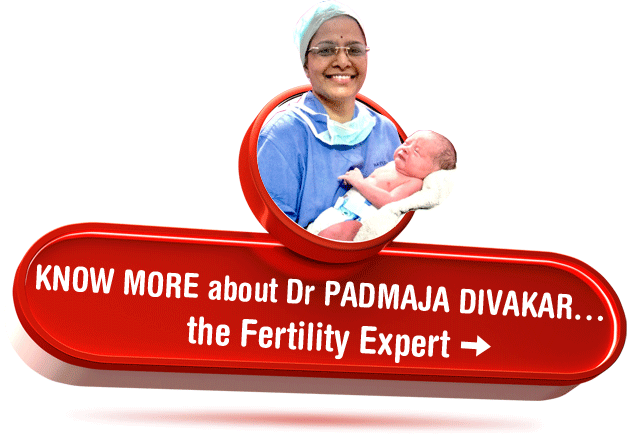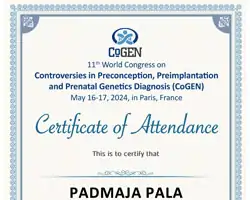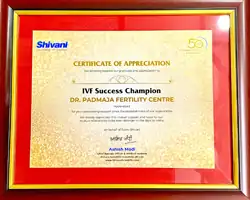-
What is IUI?IUI, or intrauterine insemination, is a procedure done in a doctor's office that places sperm directly into a woman's uterus to aid in conception. During normal intercourse, only a small percentage of a man's sperm will make it pass the woman's cervix and enter the uterus to fertilize the woman's egg. Most of the sperm that is ejaculated during intercourse remains in the vagina. A small percentage of the ejaculated sperm will travel, with the help of the woman's cervical mucous, through the vagina and into the cervical canal where it is released gradually into the uterus. But, this amount is only a fraction of the total amount of sperm ejaculated. IUI increases a couple's chance of conceiving because it does a few things. First, it removes any obstacles that could keep sperm from entering the uterus, such as hostile cervical mucous or antisperm antibodies. It also places the sperm closer to the egg. Moreover, it improves the odds of conception by simply putting more sperm into the uterus than would be possible through normal intercourse. Logically, the more sperm that is in the uterus during ovulation, the higher the chances are of conceiving.
-
What is IVF?IVF is an acronym for in vitro fertilization ('in vitro' meaning 'in glass'). Simply put IVF is adding a man's sperm to his female partners eggs in the laboratory to produce embryos. In vitro fertilization is an option for many couples who cannot conceive through conventional therapies. These embryos are put back into the female partner's uterus (womb) after 3 to 5 days of being in the incubator, hopefully they will then grow into a baby. The reasons IVF is done include - poor sperm quality and/or quantity, obstructions between the egg and sperm, ovulation problems, and sperm-egg interaction problems. These problems can prevent couples having a baby naturally, and IVF helps to solve this.
Specific conditions that might require IVF include:
- Tubal blockage or failed tubal reversal
- Endometriosis
- Cervical factor
- Pelvic adhesions
- Male factor
- Unexplained infertility/ failed conventional therapy
- Genetic testing (PGD) for inheritable diseases
- Genetic testing (PGD) for possible reasons for multiple miscarriages
The first IVF baby was Louise Brown, born at 11:47 p.m. on July 25, 1978 at Oldham General Hospital, Oldham, England through a planned caesarean section. She weighed 5 pounds, 12 ounces (2.608 kg) at birth. Dr. Patrick Steptoe, a gynecologist at Oldham General Hospital, and Dr. Robert Edwards, a physiologist at Cambridge University, had been actively working on finding an alternative solution for conception since 1966. -
What is ICSI?ICSI, which is pronounced ick-see, stands for intracytoplasmic sperm injection. ICSI may be used as part of an IVF treatment. In normal IVF, many sperm are placed together with an egg, in hopes that one of the sperm will enter and fertilize the egg. With ICSI, the embryologist takes a single sperm and injects it directly into an egg
-
What is the Success Rate for ICSI?The ICSI procedure fertilizes 50% to 80% of eggs. (Interestingly, just because a sperm is injected into an egg, it does not guarantee fertilization will happen.) Even if fertilization takes place, the embryo may stop growing. However, once fertilization happens, the success rate for a couple using ICSI with IVF is the same as a couple doing regular IVF treatment.
-
What is Recanalization?Recanalization is the restoration of flow in a vessel or duct after it has been blocked in some way. Sometimes, this process occurs naturally and at other times, it happens with the assistance of medical practitioners. There may be cases in which recanalization is actually not desired and is an unexpected outcome. A variety of tests can be used to measure levels of blockage in vessels and ducts and to determine when recanalization has occurred. An infamous example of recanalization can be seen in some vasectomy patients. In a vasectomy, the vas deferens, a duct that carries sperm from the testes to the penis, is cut. This prevents sperm from entering the ejaculate and renders a man infertile. Sometimes, however, recanalization occurs and the body is able to bridge the gap created during the vasectomy. This allows sperm to once again travel down the vas deferens. Sometimes, a vasectomy fails as a result of recanalization right away, and at other times this may occur years after the procedure has taken place.
-
Why am I childless? What is infertility/subfertility?Infertility/Subfertility is a condition when a woman after one year of unprotected sexual intercourse not being able to conceive on her own. Both the partners need to be investigated together to treat this problem.
-
Who needs to visit an Infertility Specialist?When there is no conception after one year of unprotected intercourse in women of < 35 years, the couple should seek advice from Infertility specialist. When the woman is >38 years, they should seek advice after 6 months of unprotected intercourse.
-
How common is infertility/subfertility?It is known that 84% of women would conceive within one year of marriage; 92% in two years and 93% in after three years. It means some 5-15% of the married couples are facing this problem at any given time in a society.
-
Is infertility becoming more common nowadays?Though it may appear to be so, nevertheless, as people have become knowledgeable, more and more patients start approaching specialists to find out the cause of their subfertility status sooner than before. Not withstanding that, there seems to be subtle decrease in our fertility rates as a society, thanks to our changed lifestyle, career needs and economic factors.
-
What is a normal semen Analysis?Normally a man has about 40 to 100 million sperms in semen per ml. WHO has reported that 20 million sperms per ml with 50% motility as the requirement for natural conception to occur. Anybody whose count is consistently lower than this may require ART procedure.
-
If I conceive, will my baby be normal?Studies have shown that there is no increased risk of abnormality in IVF conceived babies compared to those conceived naturally.
-
What are the precautions I should take after the IVF procedure?The procedure demands no special precautions, but avoid strenuous activity. We advise the patients to be mentally & physically relaxed as much as possible. You can return to work if you wish, but first prefer to have a few days rest.
-
What if IVF fails the first time? How many times will I have to undergo the same procedure?You can go through IVF as many times as you wish, but we advise up to five cycles at the most. *The Insemination IUI is a short procedure, lasting about 2 hours, from the time semen is produced till the time the patient is released from the hospital.
-
Is IVF the last option?IVF is the option, which has highest success rate and is also the most expensive. But, it is not "end of the road". Many women have conceived naturally or with intrauterine insemination, even after IVF. However, for those with blocked tubes & very poor sperm counts, it is only option.
-
Is IVF very Expensive?IVF is not as expensive as percieved in general. Generally, the cost of IVF cycle depends upon the dose of drugs that would be needed for ovarian stimulation. It is only as expensive as perhaps gallstone removal or removal of uterus surgery.
-
Do we need to get admitted in the IVF process?A patient undergoing IVF does not require admission. However, one should visit the center 3-5 times during monitoring cycle. On the day of egg collection, the patient would need to fast for 6 hours & come to clinic (the procedure takes about half an hour). Patients can go home after the effect of anaesthesia weans off which takes about 2-3 hours. The next scheduled visit is after 2-3 days for the embryo transfer, which again takes about half an hour and patients are free to go home after resting for one hour.
- @NGRI Metro Stn, Piller No: C-964, St No: 7,
Habsiguda, Hyderabad - 500 007, TS INDIA.
Bhargavi PRO (Telugu, English, Hindi)
+91-76610 86644Admin / PRO (Telugu, English, Hindi)
+91-76610 17755Pro's IUI/IVF/ICSI (Telugu, English)
+91-76610 58800Divakar Reddy (CEO) (Telugu, English, Hindi)
+91-98483 43244SINDHU (PRO) (English, Telugu, Hindi)
+91-79819 36828Get An Appointment
Faq's for Dr. Padmaja IVF
What We Actually Do?
Patrons Please Note:
'We have NO BRANCHES anywhere' (We are NOT CONCERNED with any other Fertility Centre with SIMILAR NAME like "Dr. PADMAJA... "In Karimnagar OR Vijayawada OR elsewhere In India)
Bhargavi PRO (Telugu, English, Hindi)
+91-76610 86644Admin / PRO (Telugu, English, Hindi)
+91-76610 17755Pro's IUI/IVF/ICSI (Telugu, English)
+91-76610 58800Divakar Reddy (CEO) (Telugu, English, Hindi)
+91-98483 43244Enquiry
| Total Cases Done | Successful | Success Rate |
|---|---|---|
0
|
0
|
0%
|
First Attempt Successful
| Total Cases Successful | First Attempts | First Attempt Success % |
|---|---|---|
0
|
0
|
0%
|














